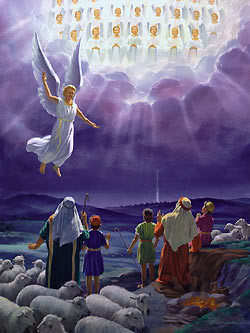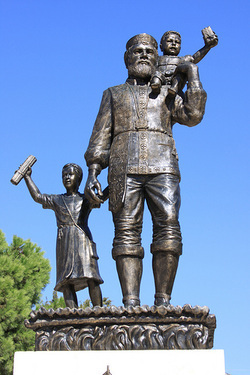
“I want a divorce.”
This is the top thing never to say to your spouse. There is a heavy meaning behind it and the results, given the circumstances, could be devastating to your marriage. When things are really tough, we are often guilty of saying things that are hurtful. This one tops the list as it is your way of telling your spouse that you’re done trying and you are giving up on him/her and the union that you vowed to share. These are not words to throw around nor threaten with. Unless you have biblical grounds for divorce, keep these words away from your lips and the ears of your spouse!
“I’m sorry, but…”
When things get heated, we often say that we’re sorry for the way that we’re acting. It’s important that you stop right there. Don’t try to justify your words or actions. By adding a “but” to your apology, you are simply saying that you feel that you acted correctly. It won’t help to diffuse your argument …it will only add more fuel to the burning embers.
“I’m disgusted by you.”
As we work through marriage together we are a constant work in progress. We’re exploring uncharted territory and, even now, are learning how to make it work. We both work each and every day to make one another happy. If you express disappointment or disgust in your spouse, you’re saying that he/she isn’t making you happy no matter how hard they’re working on it. It never feels good to hear that someone is disgusted by you, ever. Especially when you actually care what that person thinks.
“My mom/dad never…”
Often, when we look at our parents and the roles that they filled in our growing up years, we hold them up on pedestals and aspire to create the life for ourselves that we experienced as children. Women often (unconsciously) expect the same strengths in their husbands that they saw in their fathers. Men expect their wives to nurture in the same ways that their mothers did.
Comparing your spouse to your parent puts them at an unfair advantage. First, you didn’t marry your mom/dad…you are married to someone who didn’t grow up with the same experiences as you and is a different person because of it. Second, as children we are often unaware of our parents’ weaknesses. Though you may feel that your parents were the best, there may have been some qualities that you didn’t see, making them just as imperfect as you and your spouse.
And on the flip-side, don’t blame your spouse for the short-comings of your parents either. It simply has nothing to do with them. Leave the issues you may have with your upbringing where they belong: between you and your parents.
“You’re messing up the kids.”
As already mentioned, we all had different experiences growing up. We had different traditions, values and common routines. When it comes to parenting, we often imitate what we experienced. Just because the way you grew up seemed a certain way to you doesn’t mean that your spouse doesn’t feel the same about his/her experience. Rather than criticizing one another for differences in parenting; work together to develop common approaches, knowing that each of you has a lot of good to bring to the table. A few of our favorite books to approach this subject together are: Parenting is Heart Work, The Power of a Praying Parent, and Boundaries with Kids: When to Say Yes, When to Say No, to Help Your Children Gain Control of Their Lives. While we have other books we love on this subject, those are our top three.
“I’m leaving.”
It’s natural that, when you’re arguing, you want to get yourself away from the frustration. It’s important, however, that you work through that desire to leave. By leaving the situation you are non-verbally telling your spouse that you are unwilling to work through the challenge and don’t value solving the problem together. And empty threats only build up animosity and unforgiveness – neither which are beneficial to a marriage.
“It’s not worth it.”
Sometimes, when we’re frustrated, we find ourselves feeling that continuing down a familiar path of hashing out a problem isn’t worth the effort. It seems that it’s fruitless and will conclude with hurt on both sides of the argument. Rather than relaying that you don’t feel the discussion is worth the time, take a step back, take a deep breath, and try to calmly work through the problem together. Despite your feelings at the height of the argument, taking the time to talk really will be worth it in the long run. And if you need some time to think about it before proceeding, that’s okay too. Just be sure that you communicate that well with your spouse so they understand you are not giving up, rather you need time to process.
“If you don’t ___, then I will___.”
Marriage is all about communication with one another. As you talk through the life that you share, your hopes and dreams for your marriage should be part of your shared understanding. Negotiations and ultimatums should never be a part of a heated conversation with your spouse. They show power over her and place her in a place of having to abide by what you say. Another way to phrase this (when things are calmed down) is “I have an idea about___, I’d be willing to do ___ if you’re willing to ___.”
This post was written by Mike & Carlie. You can find their original post here: http://www.fulfillingyourvows.com/8-things-never-say-spouse/









 RSS Feed
RSS Feed